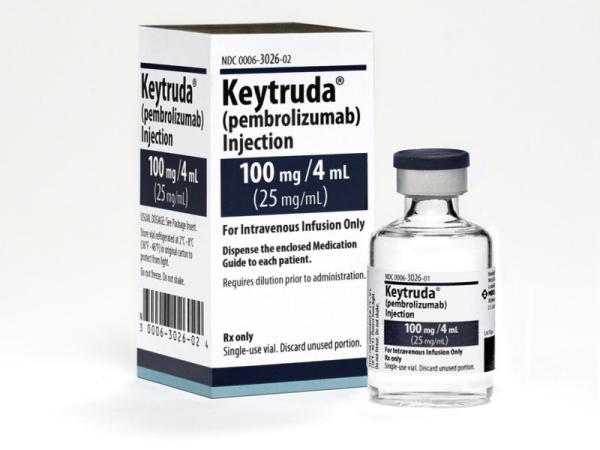Pembrolizumab Interactions
There are 604 drugs known to interact with pembrolizumab, along with 8 disease interactions. Of the total drug interactions, 3 are major, and 601 are moderate.
- View all 604 medications that may interact with pembrolizumab
- View pembrolizumab disease interactions (8)
Most frequently checked interactions
View interaction reports for pembrolizumab and the medicines listed below.
- Abraxane (paclitaxel protein-bound)
- Advil (ibuprofen)
- Ambien (zolpidem)
- Aspirin Low Strength (aspirin)
- Ativan (lorazepam)
- Bactrim (sulfamethoxazole / trimethoprim)
- Benadryl (diphenhydramine)
- Claritin (loratadine)
- Colace (docusate)
- Compazine (prochlorperazine)
- Crestor (rosuvastatin)
- Cytoxan (cyclophosphamide)
- D3 (cholecalciferol)
- Decadron (dexamethasone)
- Eliquis (apixaban)
- Humira (adalimumab)
- Inlyta (axitinib)
- Lyrica (pregabalin)
- Metoprolol Succinate ER (metoprolol)
- Norco (acetaminophen / hydrocodone)
- Paracetamol (acetaminophen)
- Singulair (montelukast)
- Synthroid (levothyroxine)
- Taxol (paclitaxel)
- Trelegy Ellipta (fluticasone / umeclidinium / vilanterol)
- Tylenol (acetaminophen)
- Tylenol Extra Strength (acetaminophen)
- Vitamin B12 (cyanocobalamin)
- Vitamin D3 (cholecalciferol)
- Zofran (ondansetron)
Pembrolizumab disease interactions
There are 8 disease interactions with pembrolizumab which include:
- immune system disorder
- HSCT
- organ transplant
- colitis
- hepatic impairment
- multiple myeloma
- pneumonitis
- thyroid disease
More about pembrolizumab
- pembrolizumab consumer information
- Compare alternatives
- Reviews (290)
- Side effects
- Dosage information
- During pregnancy
- Drug class: anti-PD-1 and PD-L1 monoclonal antibodies (immune checkpoint inhibitors)
- Breastfeeding
- En español
Related treatment guides
Drug Interaction Classification
| Highly clinically significant. Avoid combinations; the risk of the interaction outweighs the benefit. | |
| Moderately clinically significant. Usually avoid combinations; use it only under special circumstances. | |
| Minimally clinically significant. Minimize risk; assess risk and consider an alternative drug, take steps to circumvent the interaction risk and/or institute a monitoring plan. | |
| No interaction information available. |
See also:
Further information
Always consult your healthcare provider to ensure the information displayed on this page applies to your personal circumstances.


